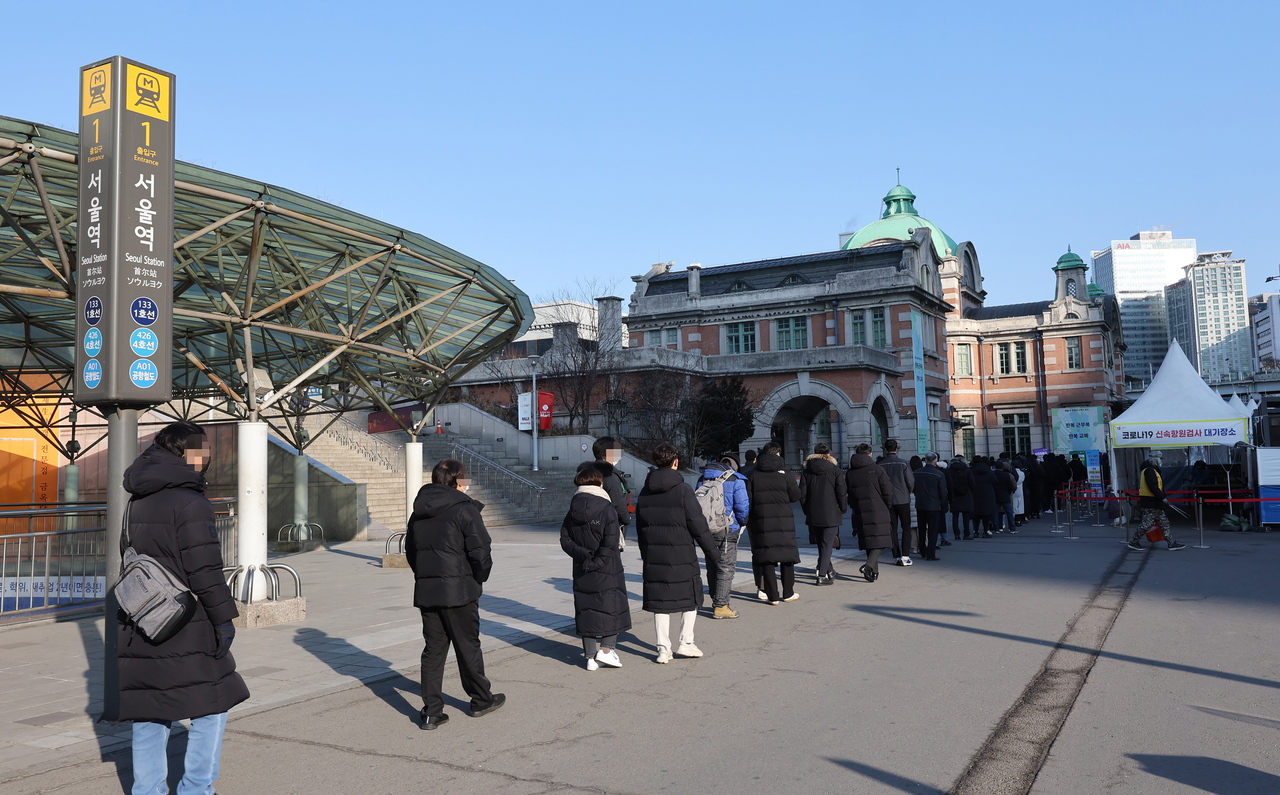South Korean PM urges calm as Covid-19 daily cases hit another record
Sign up now: Get insights on Asia's fast-moving developments

People queue at a Covid-19 testing station in Seoul on Feb 22, 2022.
PHOTO: EPA-EFE
Follow topic:
SEOUL - South Korean Prime Minister Kim Boo-kyum on Wednesday (Feb 23) urged the people to remain calm as the number of Covid-19 cases surged faster than expected to reach a new daily high of 171,452.
This was a sharp spike from the 99,573 cases recorded the previous day and brought the total tally in the country to 2,329,182 during the pandemic. More than 520,000 patients are recovering at home.
Speaking at a Covid-19 response meeting, Mr Kim said the country had an established system that could respond well to the current surge in cases caused by the highly-infectious but less severe Omicron variant of the coronavirus.
He noted that the Omicron’s fatality rate and incidence of severe symptoms were one-fourth of the previous and more deadly Delta variant.
“While we should remain vigilant and not ease anti-virus measures, there is no reason to fear or be afraid of the number of new cases like in the past,” said Mr Kim.
The prime minister also stressed that the fatality rate and number of critically-ill patients were being managed well.
The death toll stood at 7,607, and the fatality rate was 0.33 per cent.
But the number of critically-ill patients reached 512, a sharp increase from the 200-range early last week.
As of Tuesday, only 36 per cent of the 2,685 intensive care hospital beds secured by the government for Covid-19 patients were in use.
Mr Kim promised to increase the manpower devoted to virus prevention and treatment.
“We cannot chase the Omicron with our previous system,” he said, referring to the aggressive testing and contact tracing of the past, which have been suspended to allow resources to be diverted to focus on critically ill patients and vulnerable groups.
“We cannot chase the Omicron with our previous system,” he said, referring to the aggressive testing and contact tracing of the past, which have been suspended to allow resources to be diverted to focus on critically ill patients and vulnerable groups.
“Omicron is still heading to its peak, but when we can manage the severe cases and deaths in a stable manner, we plan to revise our social distancing and other anti-virus measures,” he said.
The rules that are currently in place include mandatory mask-wearing in public places, a ban on gatherings of more than six people and a 10pm curfew on high-risk businesses including restaurants and gyms.
The scanning of QR codes to enter public places has already been suspended, unless proof of vaccination is required for entry.
Experts expect the Omicron outbreak to peak around late February to mid March, reaching between 140,000 to 270,000 cases a day. The 140,000 mark was crossed earlier than expected.
Thirty percent of those infected last week were young people aged 18 and below, according to the Korea Disease Control and Prevention Agency (KDCA).
Latest data shows those aged between 10 and 19 are now the most vulnerable with their infection rate at 6,413 per 100,000 people, followed by 6,387 for those aged under 10.
The KDCA said the infection rate for those aged below 18 has doubled compared to previous weeks.
The rate has been particularly high among children below the age of 11, who are not eligible for vaccination yet. Many were infected by family members.
The Ministry of Food and Drug Safety on Wednesday approved the use of Pfizer’s vaccine for children aged between five and 11, but details regarding inoculation schedules will only be announced next month.
South Korea’s new school term is due to commence on March 2, the Education Ministry is giving schools the option of conducting online lessons for the first two weeks.
The ministry also strongly advised all students and school staff to test themselves at home at least twice a week using Antigen Rapid Test kits. Free kits will be distributed to schools as part of preventive measures.

